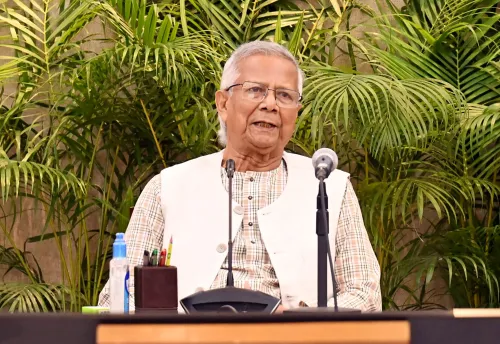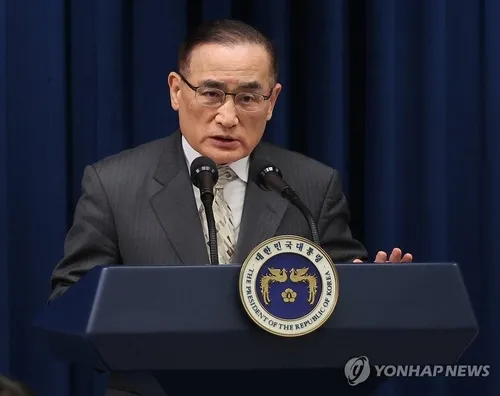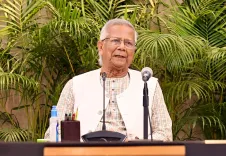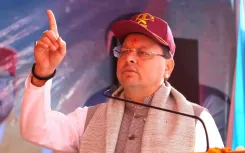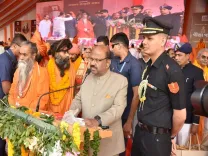Is Japan Advocating for Dialogue with North Korea at ASEAN Meetings?
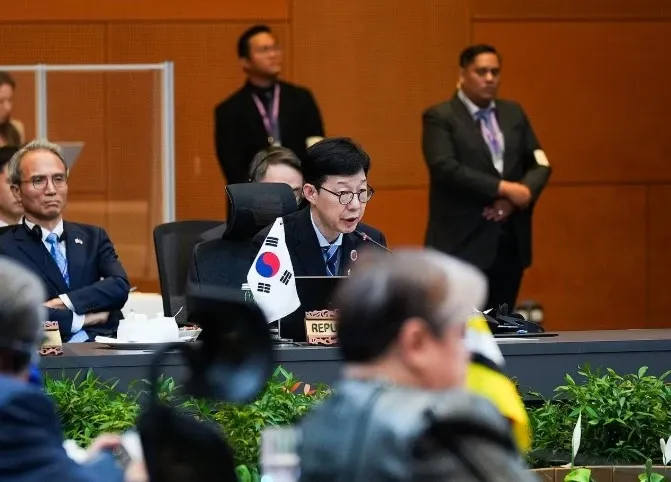
Synopsis
Key Takeaways
- Park Yoon-joo's visit underscores the commitment to ASEAN diplomacy.
- The trilateral talks focus on North Korea's denuclearization.
- Strengthened ties between South Korea, US, and Japan are critical for regional stability.
- The absence of North Korea from the ARF raises concerns.
- Negotiations are essential for easing inter-Korean tensions.
Kuala Lumpur, July 12 (NationPress) First Vice Foreign Minister Park Yoon-joo has concluded his visit to Malaysia after participating in a series of multilateral discussions organized by the Association of Southeast Asian Nations (ASEAN). This gathering featured trilateral conversations involving the United States and Japan, alongside appeals for dialogue with North Korea.
Park's three-day journey, which wrapped up on Friday, also served as a platform for Seoul to reinforce its dedication to ASEAN diplomacy under the new administration of President Lee Jae Myung, showcasing resilience amidst the political upheaval triggered by former President Yoon Suk Yeol's brief martial law attempt.
The trilateral discussions, which included Park, US Secretary of State Marco Rubio, and Japanese Foreign Minister Takeshi Iwaya, occurred on the sidelines of the meeting, even though South Korea has yet to appoint a new top diplomat, a process still in progress.
Park represented the foreign minister during the ASEAN meetings. This high-level diplomatic dialogue, marking the first since the Lee government took office, illustrates their commitment to strengthening trilateral relations following the leadership transition in Seoul.
It also provided an opportunity for Seoul and Washington to compensate for their missed bilateral discussions after Rubio canceled his earlier scheduled visit to South Korea prior to the Malaysian meetings.
During the talks, the three nations reiterated their steadfast commitment to the complete denuclearization of North Korea and agreed to maintain a robust deterrence strategy through close trilateral coordination, as reported by Yonhap news agency.
Simultaneously, Park utilized the meeting to articulate South Korea's initiatives aimed at reducing tensions with the North and promoting dialogue, urging close collaboration with the US and Japan in this context.
A senior foreign ministry official informed reporters post-meeting that the US and Japan are believed to align with Seoul’s perspective.
"They seemed to share the same viewpoint about keeping the dialogue channel open with North Korea," he stated.
Since assuming office, President Lee has advocated for renewed discussions with Pyongyang as a cornerstone of his inter-Korean strategy, marking a departure from his predecessor's hardline stance toward the North.
Park echoed this call for tension reduction throughout the ASEAN meetings.
At the ASEAN Regional Forum (ARF), Park emphasized these efforts, asserting that the Lee administration aims to make substantial progress toward peace on the Korean Peninsula.
During the East Asia Summit ministerial meeting, Park urged collective action to address the North's nuclear challenges.
With ASEAN, he reaffirmed South Korea's dedication to enhancing ties with the ten-member regional bloc under the Lee government, wrapping up with the adoption of action plans for 2026-30 based on their comprehensive strategic partnership.
These plans advocate for increased cooperation in tackling shared challenges like global supply chain uncertainties, climate change, and transnational crimes, along with initiatives in artificial intelligence, digital transitions, and green technologies.
This year’s ARF was closely monitored for North Korea’s attendance, being the only multilateral forum regularly attended by Pyongyang.
As anticipated, North Korea did not attend the forum, marking its first absence in 25 years since joining in 2000, a decision likely influenced by its severed diplomatic ties with Malaysia.
Another significant outcome from the meetings was Park's personal engagements, both inside and outside the discussions.
He was seen having a brief initial in-person encounter with Chinese Foreign Minister Wang Yi and conversing closely with Rubio before the meetings commenced.
No interactions were reported with Russian Foreign Minister Sergei Lavrov.
While attending the ASEAN meetings, Park also held discussions with the five Mekong nations - Cambodia, Laos, Myanmar, Thailand, and Vietnam. Additionally, he met bilaterally with top diplomats and counterparts from Thailand, Singapore, Sri Lanka, Bangladesh, and Malaysia.


